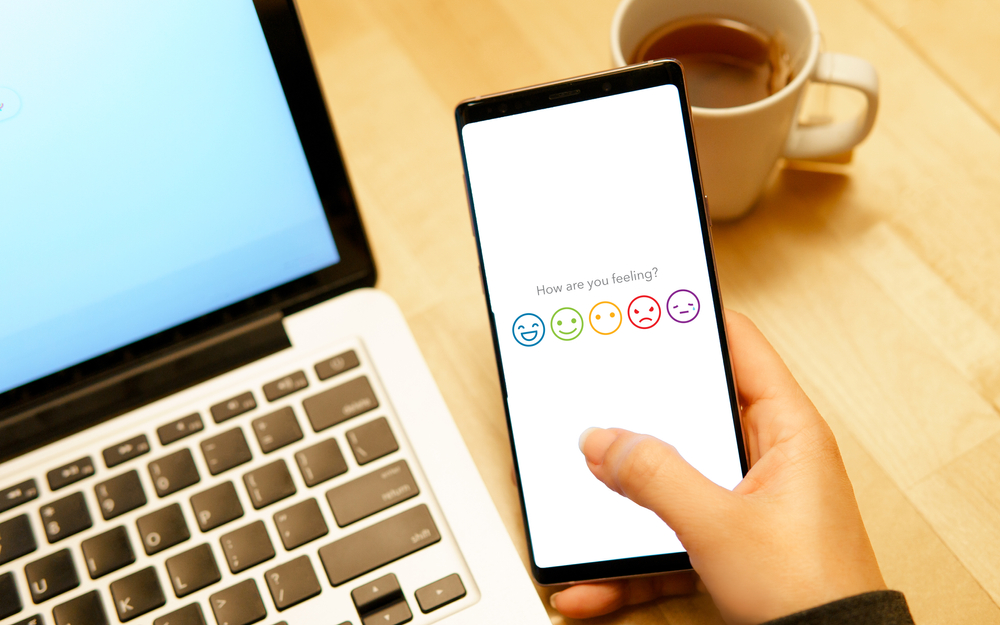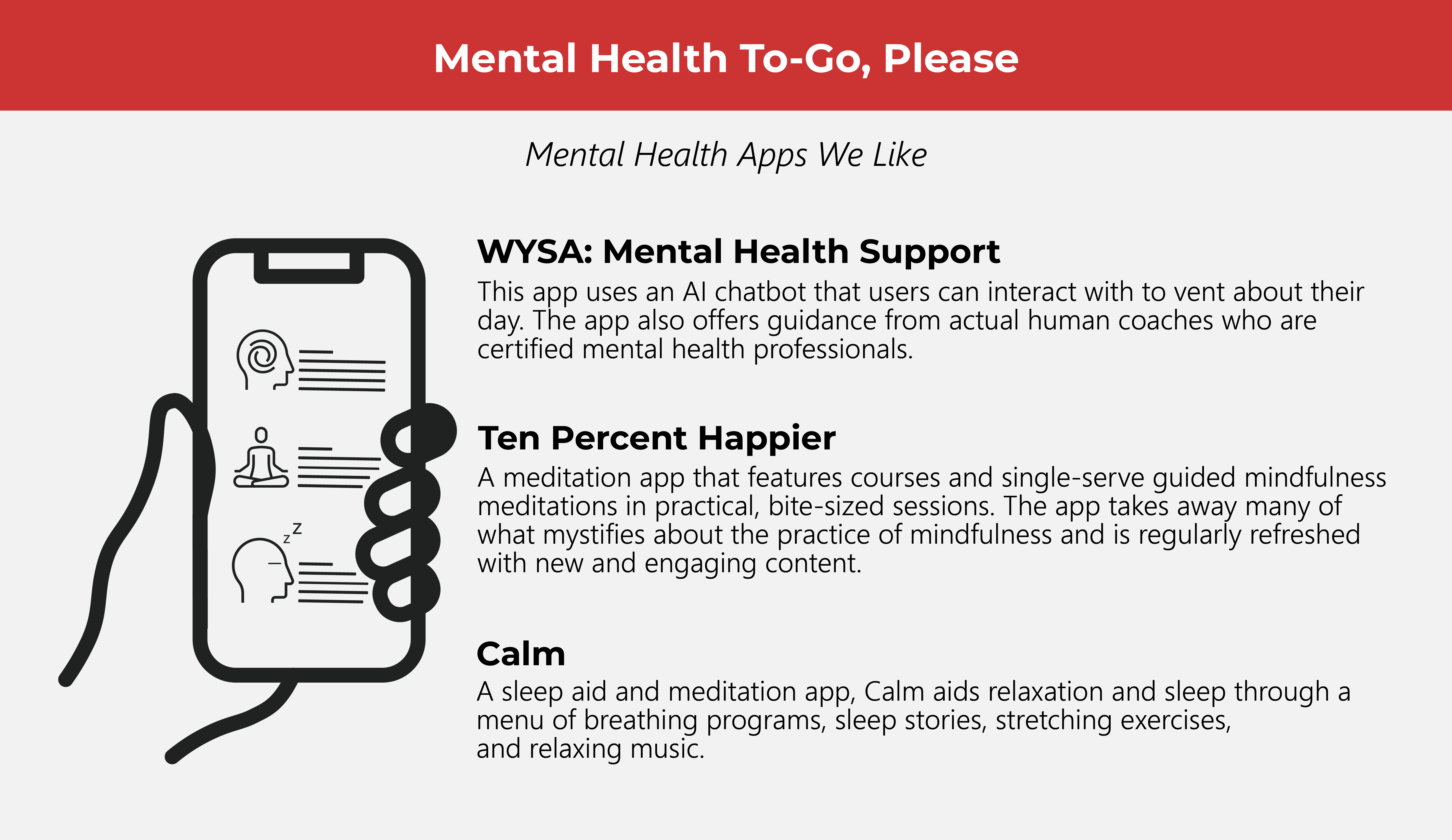Your Mobile Cares About Your Mental Health

An emphasis on mental health and wellness has given rise to a partnership between clinicians and engineers. How can some of these mental health apps help keep us sane?
Feeling stressed and on-edge lately? Well, there’s an app for that. No, really. There are several. Mental health apps abound on mobile app stores such as Apple Store or Google Play, and because there are so many offering different features and functions, the irony is that selecting which of these apps can work for you can be a little crazy-making. Fear not, because we’ll be taking a look at how some of these apps can introduce you to healthier habits, or augment an already existing practice.
The National Institute of Mental Health (NIMH) recognizes the large role technology has taken in improving the state of mental health care in terms of access, tools, and resources for those who need these. Mobile apps for one’s phone or tablet may help simplify processes for getting help. Finding a therapist in one’s area, for example, has been a basic yet helpful feature for many of these apps.
Mobile mental health apps have gotten intelligent and sophisticated in that some have built-in capabilities to gather data and information about the user and note behavioral patterns. Vitals such as blood pressure and heart rate may be used as indicators to help monitor if a user may need immediate help. Some apps send signals to professional health care workers before a real crisis can take place.
(Also read: Is Telehealth Here to Stay?)
Another trend in mental health mobile apps is “self-management”. This type of mobile mental health app gives the user agency to input their information so the app gives feedback. Items such as medication schedule reminders and upcoming doctor’s appointments can be logged. Many apps provide tools for managing anxiety and stress.

Intervention apps were created to stop or change a behavior pattern. Some of these apps may help users quit unhealthy habits such as smoking. Some apps help manage insomnia, depression, and post-traumatic stress disorder (PTSD).
There are also mental health apps for improving thinking skills that are aimed at users who have more serious mental illnesses. Apps that feature 24/7 access to remote mental health care professionals are also available. However, one of the major challenges of apps like these is that there is very little information on how effective they are. There is also little industry regulation.
Because of this challenge, mental health professionals remind users that though most of these apps do helpful work, no one app is meant to be a cure-all or meant to replace getting actual professional mental health treatments should one need them. No one app that fits all, since everyone will have different experiences and different needs to address specific problems or difficulties.
Professionals are focusing on the following to improve these innovations: effectiveness, for who and for which illnesses, guidance, privacy, and regulation. It can be tricky to discern which apps are useful, especially when more serious mental illnesses are involved. One good example cited in this article was the potential risk a 24/7 feature might have on users who may expect constant immediate attention.
When it comes to evaluating these apps, there are no review boards or organizations, nor are there standards set to evaluate effectiveness. Therefore, as users, we still need to use critical thinking in discerning which apps will be beneficial for us.
Here are a few tips from the professionals:
- Do your due diligence and research on the app. Look into who developed the app and who was involved in making it.
- Ask for a recommendation from a mental health care professional.
- Beware of misleading claims and logos. The NIMH does not endorse or promote any specific mental health app. Any app that claims this may be fraudulent.
- Sample it. If it’s a “self-management” app such as a meditation or sleep aid app, it may be worth checking out for the tools and exercises provided.
Texting an AI chatbot to vent may be a quick fix in the heat of the moment, but mental health experts stress that this is not therapy, nor is a science-backed method of treating mental illnesses. Self-care is okay, but when it comes to caring for our mental wellness, it’s best not to self-medicate our minds. It’s always okay to ask for help when we need it, and if an app can help connect you to a real professional, or make the idea of getting real help easier, then that could be one way to determine its effectiveness.
As one of the Top 19 EMS companies in the world, IMI has over 40 years of experience in providing electronics manufacturing and technology solutions.
We are ready to support your business on a global scale.
Our proven technical expertise, worldwide reach, and vast experience in high-growth and emerging markets make us the ideal global manufacturing solutions partner.
Let's work together to build our future today.




